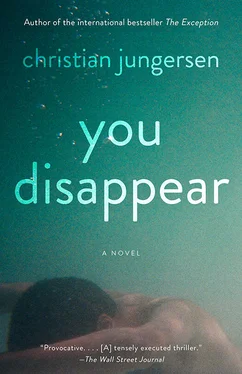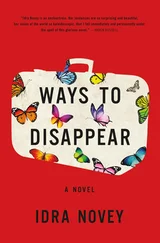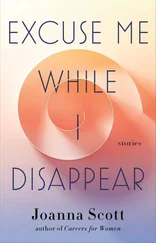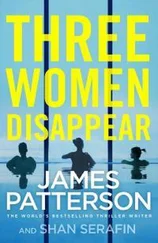“I hope you haven’t paid a lot of money for it. This remodel only reduces the value.”
“You can’t be serious.”
“Look at this row of tiles. A buyer would want them straight.”
“Well, that’s part of the charm — after all, the tiles are sitting …”
Suddenly I realize: the man who laid the tiles was definitely not the real Frederik.
Two years ago, Frederik and I spent a lot of weekends here. We had perhaps the best time of our best years — flirting and laughing and puttering about among the tools, grout, and tiles. Frederik’s never been good at maintaining the house, that’s more my department, but he wanted to put up the row of green glass tiles himself, and every time I sit on the toilet and stare up at them, their skewed aspect recalls our happiness.
But the real Frederik would have kept at it till everything was perfect — especially with something he wasn’t good at. The real Frederik would never have tolerated anything crooked.
The play of light from the halogen lamps on the tile surface merges with the smell of the open packages of laundry powder, the humid air, and the odor of Frederik’s wet towel. I feel like vomiting on the bulging linoleum, with its uneven cut in the corner. Two years ago, the temperament of the sick Frederik was unfamiliar to me — the temperament in which everything is uncomplicated and fun, in which nothing has depth. I must have let his humor rub off on me because I didn’t know any better.
• • •
“Let me stay here for a minute,” I say when the assessor and the lawyer are ready to go out and survey the rest of the upstairs.
Bernard looks at me — an inquiring look, straight in the eye. He wants to know if I can manage. Right away he’s able to see that I can’t, but what can he do? He asks, with a carefree air that I can hear doesn’t come natural, “Do you think you’ll be here for a while?”
“Nah.”
I lock the door behind them and sit down on the toilet lid, my head in my hands. How I detest the stench of our wet towels, laundry soap, and standing water.
Does Bernard and Lærke’s bathroom smell like this? I can’t imagine it does. Does it smell in a way that’s even reminiscent of this? Without being conscious of it, I must have sniffed Bernard during the course of the morning, for to my surprise I have a clear sense of how he smells — and therefore of how his bathroom smells. It smells good.
When I come out, the others are in Niklas’s room. The assessor has Niklas’s camera bag in one hand, and he’s about to root around in it — just as he roots through everything else.
“Don’t open that!” I exclaim from the doorway. “It isn’t ours, it’s our son’s.”
“Do you have a receipt?”
I rush over so I’m standing right in front of his face. “Could you leave my son’s bag alone! It’s his, you can’t take it!”
But he’s not supposed to care about what I say. “Then you need to have a receipt in your son’s name,” he says. “Gosh, it’s a splendid camera.”
Bernard’s voice is soothing. “They’re not going to take it, Mia. It’s not Frederik’s. They just need to know …”
He falls silent, and the other men do too. They’re looking toward the door in back of me.
Frederik’s come out of his workshop.
“Frederik, they want to take Niklas’s camera!” I shout.
“That’s not really what they want,” says Bernard quietly. “What they want …”
Frederik studies the three of them, then he ignores them and looks at me. I gaze right into his cheerful eyes. That blank expression. That indifferent pleasure — just like when he’s lying to me. Just like when he takes a walk, when he watches TV, when he eats.
“Mia, we have to go out and buy more fiberboard.”
“We don’t have to go out and buy more fiberboard. They want to seize Niklas’s camera. So can’t you see that—”
“But I need more fiberboard. I’ve revised the construction plans.”
“Are you listening to what I’m saying? They want to take your son’s camera!”
“I think we should go out and buy it this afternoon. Then I can take a nap first.”
“God damn it, Frederik! Can’t we focus for two seconds on someone other than you?”
Something shifts in his eyes. As if a personality is emerging somewhere within. Tentative attempts to figure out how he can get his way. To figure out how I’m thinking and feeling, and what he has to say to get that fiberboard. It’s the same look, deeply focused and oddly distant at the same time, as when a little boy — the new neural pathways forming — practices sitting on the pot.
“And if I don’t let you decide for me, then you’ll just start hitting me, won’t you?” He looks hesitantly at all four of us. “Then you’ll just beat me hard on my back, right? If I don’t let you decide, then you’ll beat me with that bowl from the coffee table.”
It has long been a riddle why people with orbitofrontal brain injuries make such disastrous choices in daily life, when the same people can appear normal in conversation and on conventional psychological tests.
The phenomenon can be explained if we assume that we utilize different areas in our brains when we are going to make an important decision than when we are going to choose between a cappuccino and a café au lait.
We must also assume that there is a marked difference between the brain areas we use when we talk about critical life decisions, and the brain areas we use when we actually decide .
Orbitofrontal damage is easiest to discover when the affected person has the freedom to make his own decisions. However, such injuries can be quite difficult to observe in situations with well-defined rules — which is precisely why traditional IQ tests and ordinary conversations do not register them.
In addition to satisfying scientific curiosity, the development of an effective test for orbitofrontal injuries is of critical importance in determining how the affected people are treated by doctors and social workers, whether they can qualify for accident insurance and disability pensions, and a host of other practical issues.
But how do we construct a psychological test that will mimic fundamental life choices in all their emotional complexity and lack of rules?
Antoine Bechara, who worked in the department of the famed neurologist Antonio Damasio at the University of Iowa, developed the Iowa Gambling Task for exactly this purpose in 1994.
In the test, the investigator places four piles of cards in front of the research subject. The subject is not told anything about the piles or about the rules of the game, other than that he has the possibility of winning or losing money. Neither is he told how long the game will last. He has to figure these things out for himself.
In two of the piles, the research subject receives $50 for every card he turns up, except for occasional cards that require him to pay $250. If he keeps drawing cards from these two piles, he will make a profit.
In the other two piles, the subject receives double the reward—$100—for each card he draws, except when he turns up an occasional card that costs him $1,250—i.e., a rather substantial penalty. If he continues to draw cards from these two piles, he will lose a fortune over the long run.
Experimental subjects who are healthy (or have brain injuries that lie outside the frontal lobes) will begin by taking cards from all four piles while they try to determine a pattern in the game. After just a few cards, they will prefer the $100 piles, but before they have drawn 30 cards, they generally learn to keep to the low-risk piles. They will thus earn money from the game. They cannot say exactly why they choose the low-risk piles; they just have a vague (but correct) sense that they are profitable in the long run.
Читать дальше



![Ally Carter - [Gallagher Girls 01] I'd Tell You I Love You But Then I'd Have to Kill You](/books/262179/ally-carter-gallagher-girls-01-i-d-tell-you-i-lo-thumb.webp)








